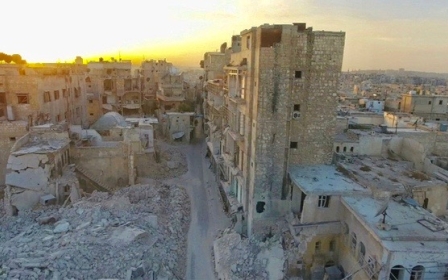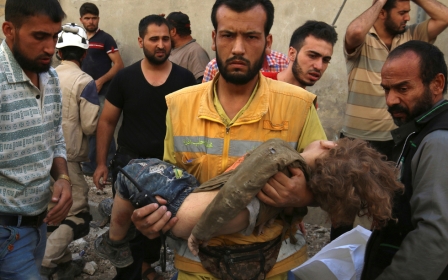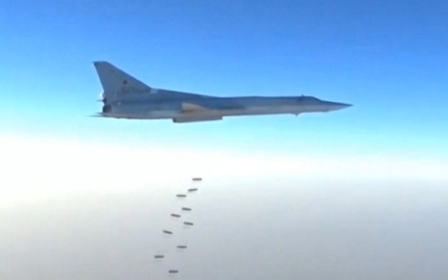US, Russia and allies meet to talk Syria, but with little hope of breakthrough

Fresh diplomatic talks to end the Syrian conflict open in Switzerland on Saturday, the first since Washington halted negotiations with Moscow earlier this month on efforts to revive a failed ceasefire.
With violence still raging in Aleppo and Russian air strikes supporting a further advance for pro-government forces on the ground, US Secretary of State John Kerry is due to meet Russian Foreign Minister Sergei Lavrov and top diplomats from the UN and regional powers in Lausanne.
But even before the talks began, Lavrov appeared to dampen down hopes of a breakthrough, with Russian news agencies on Friday quoting him as saying he had no "special expectations" for the latest diplomatic effort.
The deputy head of the National Coalition, the main Syrian opposition body which is not participating in the talks, also slammed them as "procrastination," saying they "will only lead to wasting more time...and the shedding of more Syrian blood".
And a French diplomatic source told AFP: "When you see the results from the previous efforts, quite frankly I'm a bit sceptical about the next ones."
A senior US official, travelling with Kerry, told reporters that the talks were designed to explore ideas for ending the conflict, not to produce an immediate breakthrough.
"I think we need to see what happens in the room to determine whether this is the beginning of a new process that continues in this format or not," he said.
With no let-up in the bombardment of eastern Aleppo, the sides will look at how to revive a short-lived ceasefire.
Moscow and Washington hammered out the agreement before it quickly crumbled last month amid the ferocious assault on the rebel-held part of the city, backed by Russian air power.
The offensive has sparked accusations from the West of potential war crimes.
Lavrov also insisted on Friday that Russia did not plan to present new initiatives on ways to resolve the conflict.
Instead he said Moscow would call for "concrete steps" to implement earlier UN resolutions and the now defunct US-Russia ceasefire deal.
Kerry and Lavrov will be joined in Lausanne by UN Syria envoy Staffan de Mistura, along with the top diplomats of Turkey, Saudi Arabia and Qatar - all backers of Syrian opposition forces.
Iran, a key supporter of Assad's regime, has said its Foreign Minister Mohammad Javad Zarif will take part as well.
The US official told reporters that Egypt, Iraq and Jordan would be represented.
Russia 'playing for time'
Kerry is then due to head to London, where he is likely to meet up on Sunday with his counterparts from Britain, France and Germany.
However, there is little prospect that the talks will lead to a breakthrough in resolving the five-year conflict that has claimed some 300,000 lives.
Some experts think Russia may be playing for time as it seeks to solidify its positions ahead of the US presidential elections, now only weeks away.
"The Russians are seeking to maximise their advantage before [President Barack] Obama's successor - probably [Hillary] Clinton - steps in with a likely firmer approach to Syria," said Karim Bitar, a researcher at the Institute for International and Strategic Affairs think-tank in Paris.
In Aleppo, the Syrian Observatory for Human Rights, a British-based monitor, said Russian and Syrian warplanes again pounded opposition-controlled eastern districts on Friday.
The intensified bombardment has put yet more strain on rescue workers and medical staff in the besieged east, home to an estimated 250,000 residents.
Overwhelmed rescue workers combed through the rubble of shattered buildings looking for victims of the bombardment.
Leading charities meanwhile called Saturday for a truce in the battered city, issuing a joint plea "to establish a ceasefire of at least 72 hours in east Aleppo".
"This will allow the sick and wounded to be evacuated, and for food and medical aid to enter the besieged area," said a statement from Save the Children, which joined the International Rescue Committee, the Norwegian Refugee Council and Oxfam International in calling for a truce.
Middle East Eye propose une couverture et une analyse indépendantes et incomparables du Moyen-Orient, de l’Afrique du Nord et d’autres régions du monde. Pour en savoir plus sur la reprise de ce contenu et les frais qui s’appliquent, veuillez remplir ce formulaire [en anglais]. Pour en savoir plus sur MEE, cliquez ici [en anglais].




